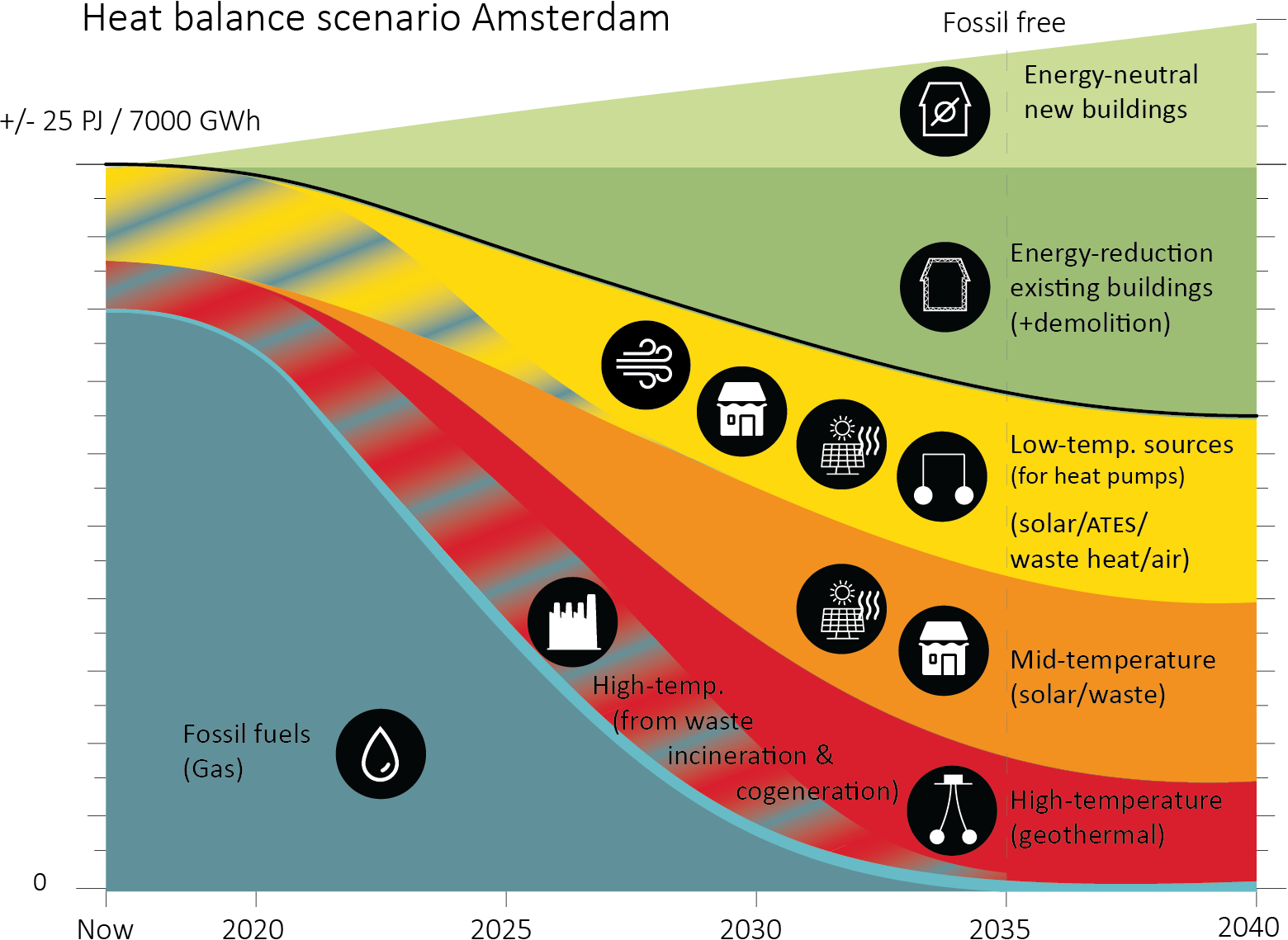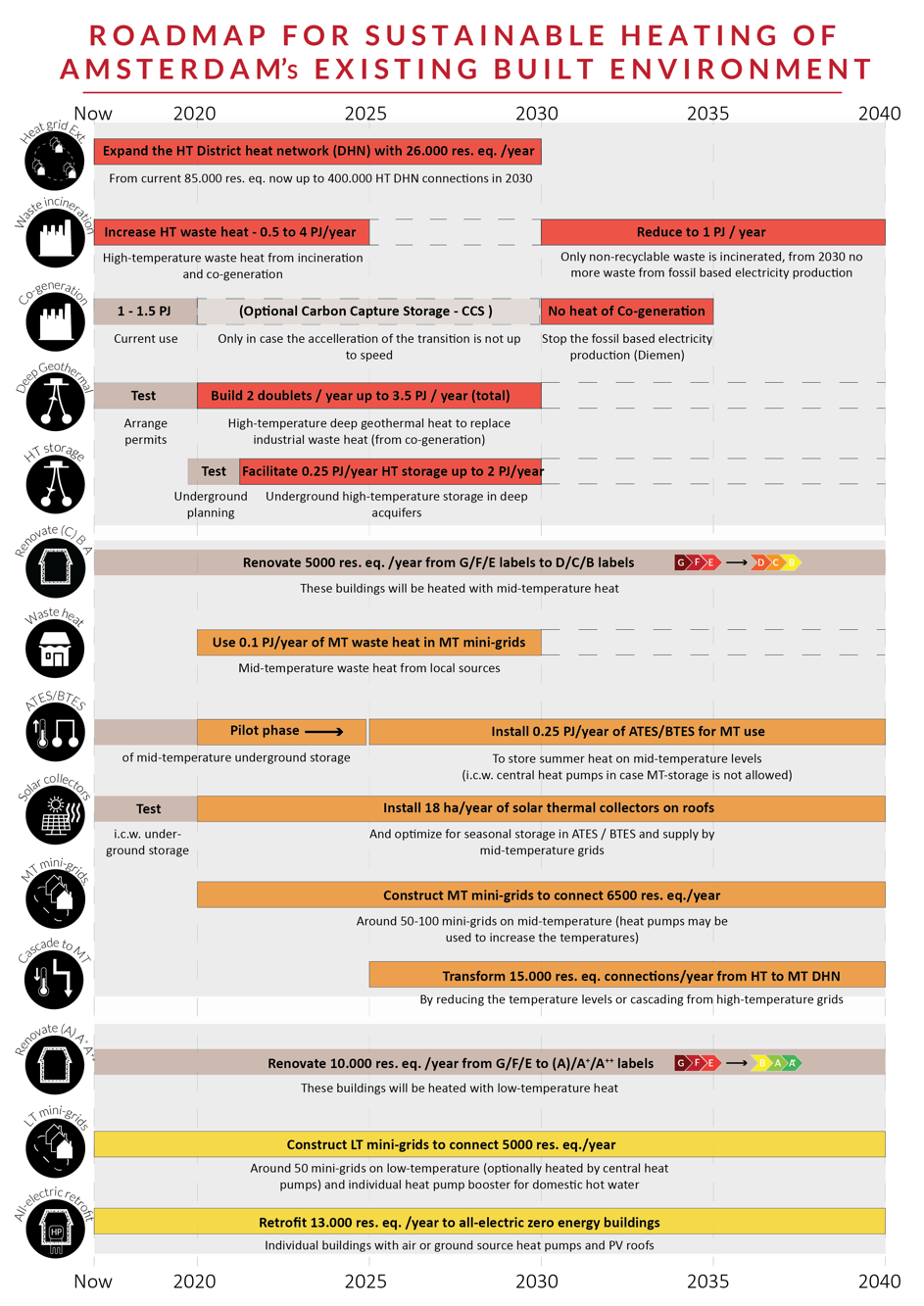City Zero [carbon] Energy
A balanced approach to the city of the future
Currently, over 68% of Europeans live in cities and this number will rise. In 2050, it is expected that 80% of the world population will live in cities. Urban context areas are the place where the transition to renewable energy needs to be, based on a strong involvement of all stakeholders: industries, decision makers, knowledge partners and citizens. All infrastructures can play a role in a zero-energy solution, but it all needs to be decided through transparent and cooperative processes. What is noticeable is that different infrastructures are today mixing, supplementing and even substituting for each other. And it isn’t just for domestic heat system and gas grids, but also for electricity, fuels, sewage, drinking water, ICT and solid waste. Integrating change and going beyond current practice to share skills, knowledge and today and the future needs are our primary goal.
The objectives of this project therefore are:
Showcasing innovations in the urban contexts of Grenoble and Amsterdam.
By applying (technical) innovations in our cities, we learn how to overcome barriers, how to build business models and how to make technology both user-friendly and attractive. These innovations are both on system level (smart grids, district heating) as well as on household level (renovation, citizen engagement, home batteries and games).
Contributing to the 20-20-20 targets of both cities.
The City-zen innovations will directly save 59,000 tonnes of CO2 each year. At the same time, the infrastructure is being used more efficiently and is made futureproof. This will allow future innovations to be applied more easily. Fact: the European CO2 emission per capita is 6.8 tonnes/year. City-zen helps to save the CO2 emission of 8.676 Europeans, not only for this year but for many years to come.
Cities, knowledge institutions, citizens and industries are working together.
By bringing together academic knowledge, industrial technology and everyday questions of locals, City-zen contributes to solving the cities’ challenges. Alone you might go faster, but together we will get further!
Understanding the complex playing field of energy transition.
An integrated methodology for cities to build a roadmap to abandon fossil energy is developed and applied via a roadshow in Grenoble, Amsterdam and 8 other cities in Europe. A game is developed to enable and speed up decision making processes.
Upscaling of innovation.
City-zen focusses on New Urban Energy solutions, which will help cities to become energy neutral. All innovations are evaluated on their scaling potential and will lead to many more Smart Urban Energy projects throughout Europe.
Innovation is at the heart of the project: now is the right time for large-scale implementation of new solutions and smart urban technologies. For technology and process development, workshops supported by technology teams in the demonstrator cities, have been organised as part of the project to reduce the gap between innovation and implementation and to share material knowledge.
The success of the technology implementation also depends on the involvement of citizens. Accordingly, the project recognises the key position of this group. They have been involved through user groups, and an advisory board with societal representatives was installed. A serious game was created to engage citizens in an innovative way in the development of their smart city.
All these approaches match the ambitions of Amsterdam and Grenoble to be eco-friendly cities. For both cities an energy transition roadmap was developed, presented and discussed with citizens and stakeholders. The Amsterdam roadmap got national coverage on television and radio.
Future cities, smart, open, with a high level of liveability and prosperity are no longer a utopia with City-zen!
Facts
| Funder: | EU |
| Programme: | FP7-ENERGY - Specific Programme “Cooperation”: Energy |
| Overall budget: | € 32.000.000 |
| Grant amount: | € 32.000.000 Contribution to TU Delft: € 550.000 |
| Grant number: | 608702 |
| Role TU Delft: | Project partner and leader of work package WP4 and task T4.2 and T9.3.2 |
| Project duration: | March 2014 - December 2019 |
| TU Delft researchers: | Prof.dr.ir. Andy van den Dobbelsteen Dr. Craig Martin Ir. Siebe Broersma Ir. Michiel Fremouw Ir. Tess Blom |
Project partners
Vito, Amsterdam Smart City, Utrecht University, Westpoort Warmte, Alliander, Hespul, Queen’s University Belfast, TH!nk E, DNV.GL, Waternet, NeoSmart, Sanquin, Amsterdam Economic Board, Daikin, Siemens, University of Siena, Municipality of Grenoble, Commissariat a l’énergie atomique, Compagnie de chauffrage de Grenoble, Gaz et Électricité de Grenoble, Atos Worldgrid, Clicks and Links Ltd, AEB, Grenoble’s lical energy and climate agency, Grenoble Alpes Métropole, Greenalp

